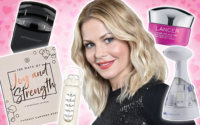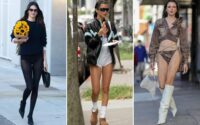Women on TikTok are proudly flaunting their ‘ugly privilege’
Sure, being pretty has it perks — but have you heard of “ugly privilege”?
Women are celebrating their average looks online, championing their plain Jane genetics for deterring unwanted male attention.
“When I say I have ‘ugly privilege,’ it’s not that I necessarily think that I am an ugly individual,” explained one creator, who goes only by Sarah, in a now viral video posted this week.
“What I mean by that is men, in general, don’t find me attractive. For the most part, men think I’m ugly and they leave me alone, and to me, that’s a privilege.”

She, along with fellow TikTokkers in the comments of the clip, praised their ability to be “invisible” in order to feel “comfortable” and “safe” in a world where women after often ogled and commodified.
“I gained weight after having my son and men basically ignore me now, I have been so unmotivated to lose weight because it’s been so nice. I used to get harassed constantly, couldn’t escape it,” someone else chimed in.
“I gained a bunch of weight after having my last two kids. No men following me in the parking lot, no cat calls, etc. so I haven’t wanted to try and get my body back because honestly, I don’t want that.”
The so-called blessing is the opposite of the “pretty privilege” curse suffered by some women who say they feel objectified by men and hated by other women despite the perks good looks have to offer.
But “ugly privilege” allegedly has its advantages outside of objectification.

In the workplace, “employees who do not fit traditional beauty standards are sometimes less likely to be affected by certain biases,” human resources professional Lucas Botzen told Business Insider.
“They may well have less interruption from others and less inappropriate behavior, which might enable them to pay more focus on their jobs and thus contribute accordingly toward their role,” the Rivermate founder continued, adding that the increased productivity could even yield a raise.
Women are often judged more by their appearance than their male counterparts, the outlet reported, which could be a determining factor when applying for a job, for example.
Some people have even been rejected for roles because of their appearance, such as having tattoos, not wearing makeup or dying their hair.
Alexa Chilcutt, executive education professor and executive coach at Johns Hopkins Carey Business School, recalled an encounter with a male attorney who supposedly told her that it was a blessing she didn’t have “large breasts” because she was already conventionally beautiful.
“If you did, no one would see that you’re intelligent,” she recounted to Business Insider.
In that warped, not meeting some societal expectations of beauty could be considered a blessing in disguise.
“Women who are ‘off the radar’ physically may not have to deal with ancillary distractions of others vying for attention and can focus on and are seen for the quality of their relationships and work,” she said.
“Being less feminine or ‘pretty’ may work to a woman’s advantage when seeking higher levels of leadership.”


